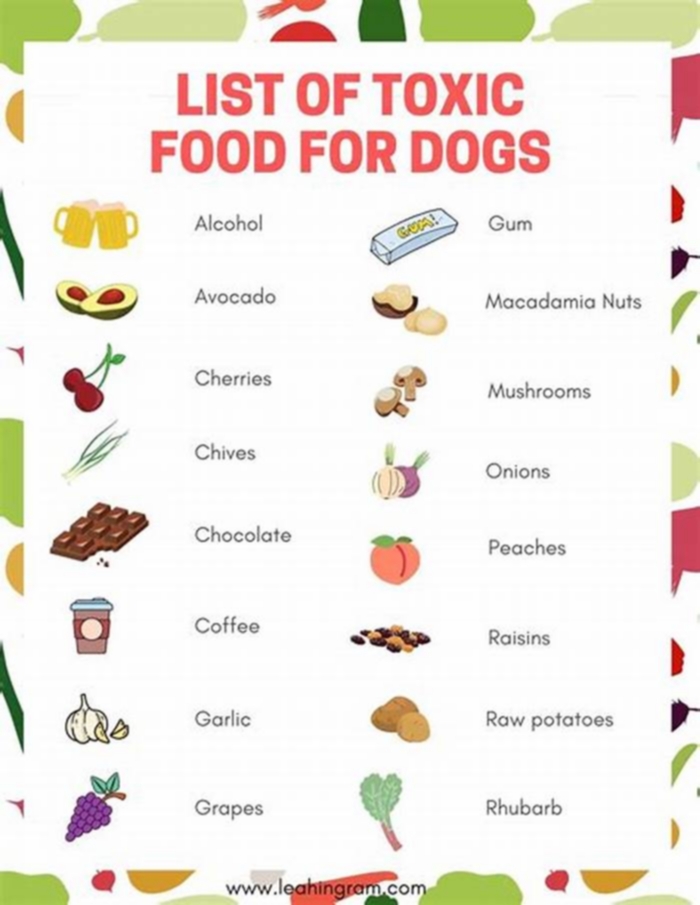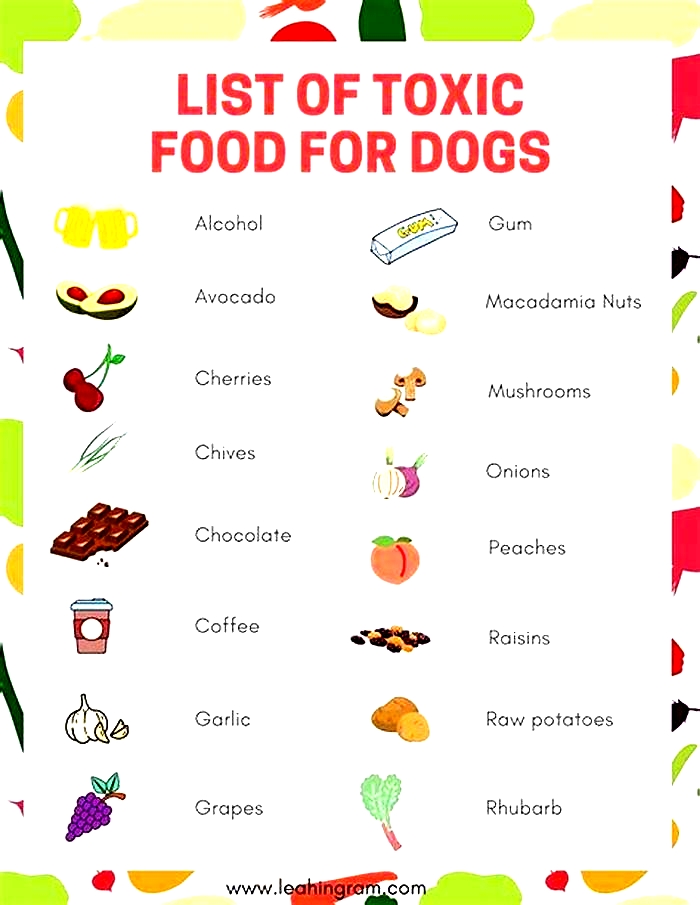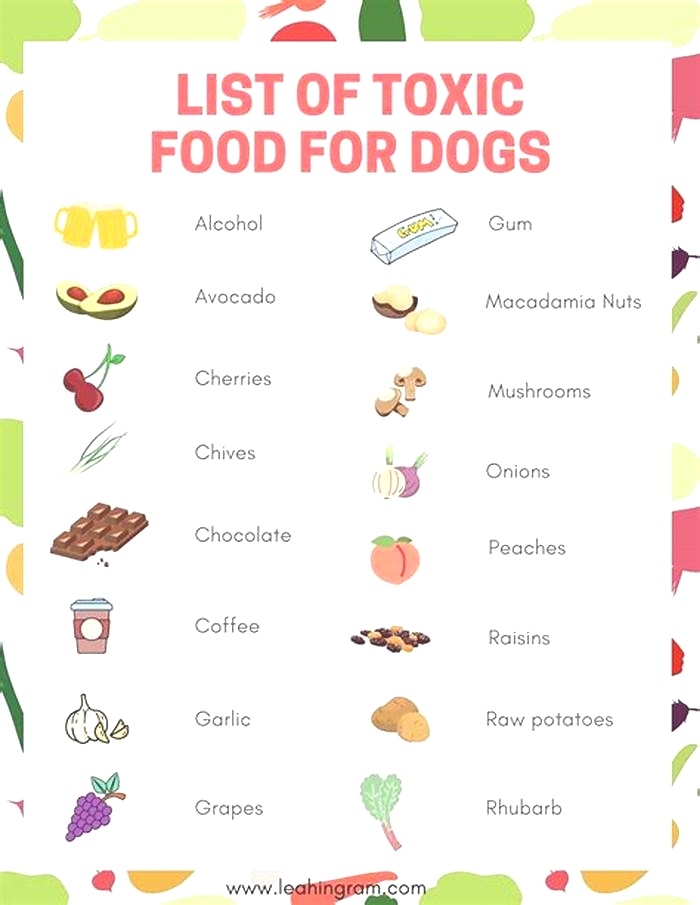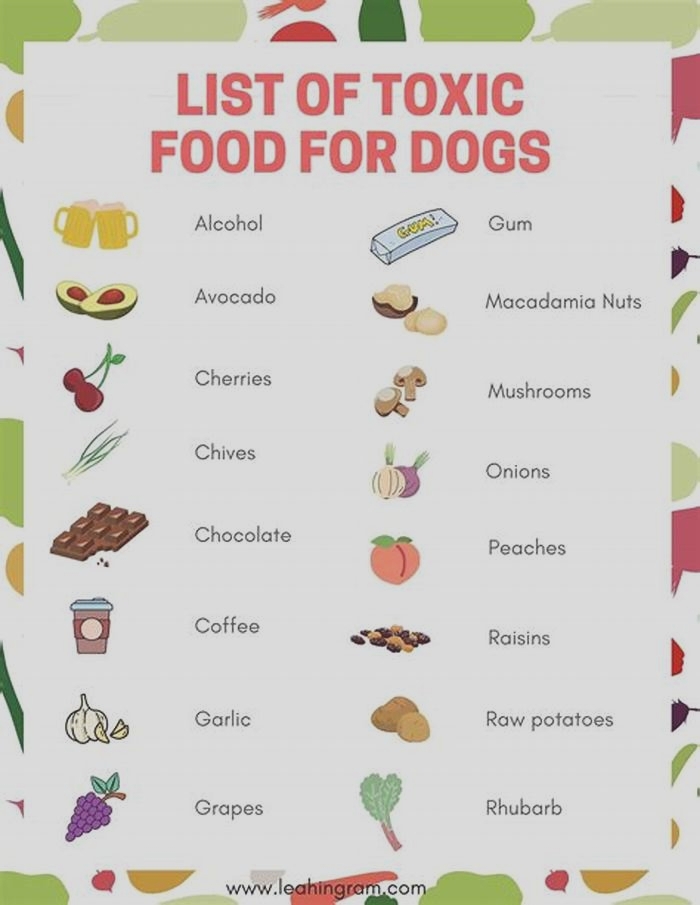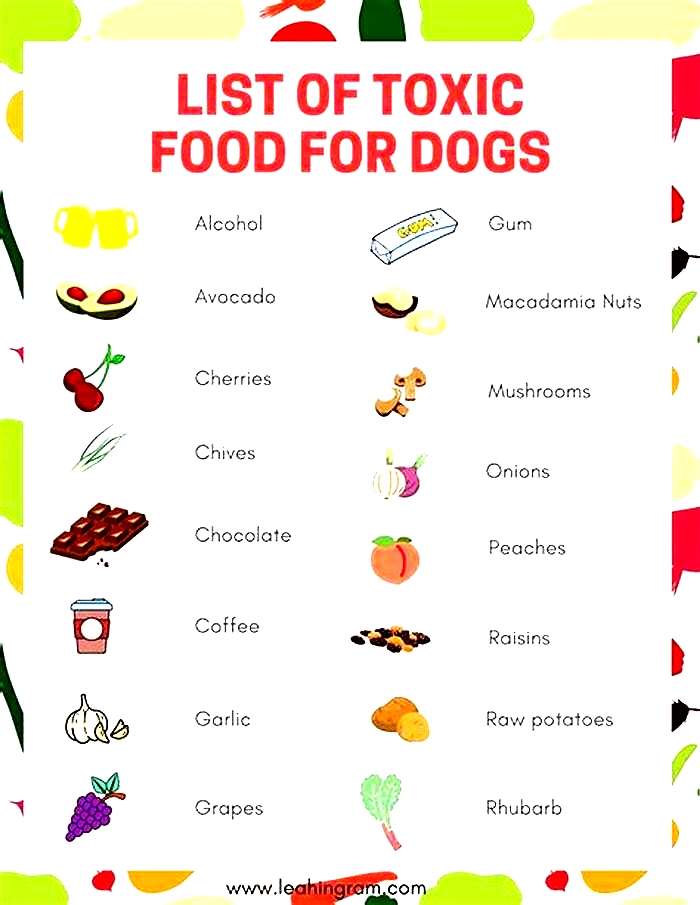5 human foods toxic to dogs
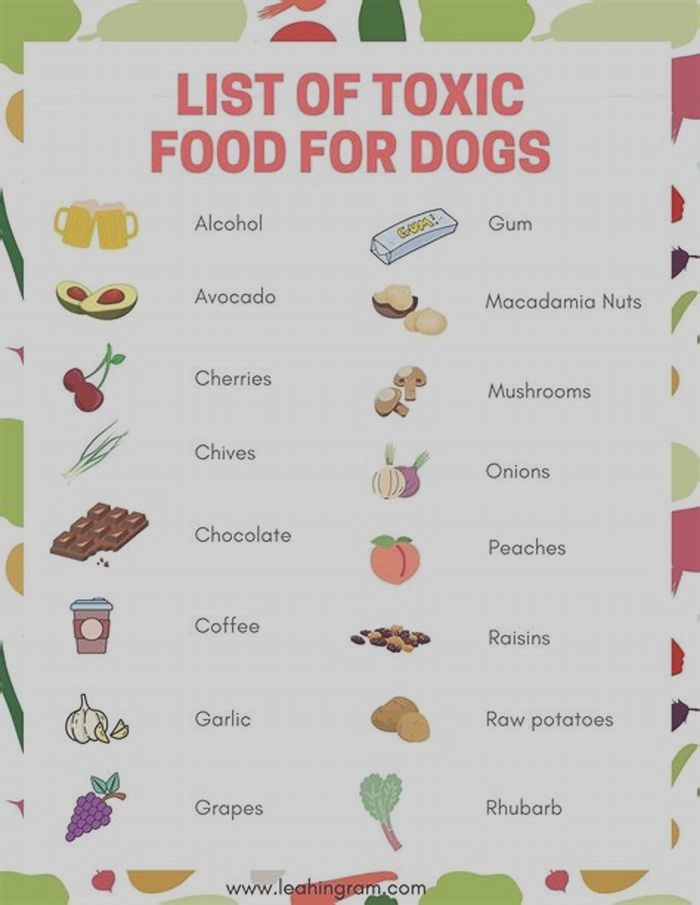
People Foods to Avoid Feeding Your Pets
ASPCA Animal Poison Control Center Phone Number: (888) 426-4435
Our Animal Poison Control Center experts have put together a handy list of the top toxic people foods to avoid feeding your pet. As always, if you suspect your pet has eaten any of the following foods, please note the amount ingested and contact your veterinarian or the ASPCA Animal Poison Control Center at (888) 426-4435.
AlcoholAlcoholic beverages and food products containing alcohol can cause vomiting, diarrhea, decreased coordination, central nervous system depression, difficulty breathing, tremors, abnormal blood acidity, coma and even death. Under no circumstances should your pet be given any alcohol. If you suspect that your pet has ingested alcohol, contact your veterinarian or the ASPCA Animal Poison Control Center immediately.
AvocadoAvocado is primarily a problem for birds, rabbits, donkeys, horses, and ruminants including sheep and goats. The biggest concern is for cardiovascular damage and death in birds and rabbits.Horses, donkeys and ruminants frequently get swollen, edematous head and neck.
Chocolate, Coffee and CaffeineThese products all contain substances called methylxanthines, which are found in cacao seeds, the fruit of the plant used to make coffee, and in the nuts of an extract used in some sodas. When ingested by pets, methylxanthines can cause vomiting and diarrhea, panting, excessive thirst and urination, hyperactivity, abnormal heart rhythm, tremors, seizures and even death. Note that darker chocolate is more dangerous than milk chocolate. White chocolate has the lowest level of methylxanthines, while baking chocolate contains the highest.
CitrusThe stems, leaves, peels, fruit and seeds of citrus plants contain varying amounts of citric acid, essential oils that can cause irritation and possibly even central nervous system depression if ingested in significant amounts. Small doses, such as eating the fruit, are not likely to present problems beyond minor stomach upset.
Coconut and Coconut OilWhen ingested in small amounts, coconut and coconut-based products are not likely to cause serious harm to your pet. The flesh and milk of fresh coconuts do contain oils that may cause stomach upset, loose stools or diarrhea. Because of this, we encourage you to use caution when offering your pets these foods. Coconut water is high in potassium and should not be given to your pet.
Grapes and RaisinsAlthough the toxic substance within grapes and raisins is unknown, these fruits can cause kidney failure. Until more information is known about the toxic substance, it is best to avoid feeding grapes and raisins to dogs.
Macadamia NutsMacadamia nuts can cause weakness, depression, vomiting, tremors and hyperthermia in dogs. Signs usually appear within 12 hours of ingestion and can last approximately 24 to 48 hours.
Milk and DairyBecause pets do not possess significant amounts of lactase (the enzyme that breaks down lactose in milk), milk and other dairy-based products cause them diarrhea or other digestive upset.
NutsNuts, including almonds, pecans, and walnuts, contain high amounts of oils and fats. The fats can cause vomiting and diarrhea, and potentially pancreatitis in pets.
Onions, Garlic, ChivesThese vegetables and herbs can cause gastrointestinal irritation and could lead to red blood cell damage and anemia. Although cats are more susceptible, dogs are also at risk if a large enough amount is consumed.
Raw/Undercooked Meat, Eggs and BonesRaw meat and raw eggs can contain bacteria such as Salmonella and E. coli that can be harmful to pets and humans. Raw eggs contain an enzyme called avidin that decreases the absorption of biotin (a B vitamin), which can lead to skin and coat problems. Feeding your pet raw bones may seem like a natural and healthy option that might occur if your pet lived in the wild. However, this can be very dangerous for a domestic pet, who might choke on bones, or sustain a grave injury should the bone splinter and become lodged in or puncture your pets digestive tract.
Salt and Salty Snack FoodsLarge amounts of salt can produce excessive thirst and urination, or even sodium ion poisoning in pets. Signs that your pet may have eaten too many salty foods include vomiting, diarrhea, depression, tremors, elevated body temperature, seizures and even death. As such, we encourage you to avoid feeding salt-heavy snacks like potato chips, pretzels, and salted popcorn to your pets.
XylitolXylitol is used as a sweetener in many products, including gum, candy, baked goods and toothpaste. It can cause insulin release in most species, which can lead to liver failure. The increase in insulin leads to hypoglycemia (lowered sugar levels). Initial signs of toxicosis include vomiting, lethargy and loss of coordination. Signs can progress to seizures. Elevated liver enzymes and liver failure can be seen within a few days.
Yeast DoughYeast dough can rise and cause gas to accumulate in your pets digestive system. This can be painful and can cause the stomach to bloat, and potentially twist, becoming a life threatening emergency. The yeast produce ethanol as a by-product and a dog ingesting raw bread dough can become drunk (See alcohol).
Human Foods That Are Toxic to Dogs
One of the most common questions Im asked as a veterinarian has to be what human foods are toxic to dogs? Dogs are part of the family and many pet owners are understandably curious to know if their favorite foods can be safely shared with their four-legged friends. This article will cover some of the most common foods that are safe for people, but dangerous for dogs
1. Onions and garlic

Though delicious on top of a pizza, foods containing onion and garlic should never be shared with your pup. In fact, any plant belonging to the Allium family, including onion, garlic, leek, chives, and shallots is highly toxic to dogs. They are equally dangerous in any form whether raw, cooked, or dehydrated, and onion and garlic powders can be found in everything from instant soups to sauces.
Toxicity is caused by a chemical known as N-propyl disulfide which damages healthy canine red blood cells, leading to their destruction by the body (hemolytic anemia). This is a serious and life-threatening condition and even a very small amount of onion or garlic has been known to cause red blood cell damage.
Though the toxic dose can vary depending on the individual, studies have suggested that dogs that have eaten an equivalent of 0.5% of their body weight or more consistently show signs of onion toxicity.
This means smaller dogs are much more susceptible, for example, a 12lb (5kg) Jack Russell Terrier would only need to eat 25g of onion to receive a toxic dose, but a 45lb (20kg) Border Collie would need to eat 100g (one medium-sized onion). Toxicity is also cumulative, so small amounts over time can do just as much damage.
2. Chocolate

Though it might be one of our favorite treats, chocolate should never be shared with your four-legged friend! It contains a chemical called theobromine which is highly toxic to dogs, plus another ingredient thats best avoided caffeine!
Chocolate toxicity tends to start with vomiting and diarrhea, but at high enough doses progresses to affect the heart, airways, and nervous system resulting in tremors, seizures, and even death.
The amount of theobromine in chocolate varies depending on the type, with white chocolate containing very low levels (0.1mg/g), and cocoa powder, dark or cooking chocolate containing much higher levels (15-20mg/g). Doses of between 100-500mg of theobromine per kilogram of bodyweight are reported to be fatal, but signs of toxicity can occur at much lower doses.
For context, this is equivalent to 75g of dark chocolate for a 22lb (10kg) dog or even less. If your dog has eaten chocolate, the first thing to do is contact your veterinarian for advice. A chocolate toxicity calculator can also be useful in this situation but should never replace the advice of a qualified veterinary professional.
3. Caffeine

Mans other best friend, caffeine, is essential to get many of us through a busy day. Just dont share it with your pooch! Remember, its not just your morning cup of coffee that contains caffeine, caffeine is also commonly found in energy drinks, tea, chocolate, and coffee-flavored foods such as ice cream, as well as caffeine tablets and supplements.
Unlike humans, dogs have trouble metabolizing caffeine and its stimulant properties can lead to toxic consequences including vomiting, diarrhea, tremors, increased heart rate (tachycardia), and high blood pressure.
Seizures and death are also possible at high doses. Signs of caffeine toxicity are consistently reported after consumption of 20mg/kg (9mg/lb) bodyweight but more severe signs usually occur at 45mg/kg (20mg/lb). This around 3-4 teaspoons of instant coffee for a 12lb (5kg dog).
Dont forget other things in coffee are dangerous too! Whilst regular sugar, milk, and cream arent poisonous to dogs, high levels of fat or sugar may cause an upset tummy or in severe cases pancreatitis (inflammation of the pancreas and associated illness). Artificial sweeteners containing xylitol are also highly toxic to dogs and even small amounts can be fatal if consumed.
4. Grapes and raisins

Currents, raisins, grapes, and sultanas in any form (fresh, dried, cooked) or baked into foods like cakes, bread, or bagels should be avoided by dogs at all costs. Remember most trail mixes and many kinds of cereal will contain these ingredients too. But why are they so toxic to dogs?
The truth is we still dont fully understand the mode of action that causes grape and raisin toxicity. Scientists have suggested molds and fungi that produce mycotoxins could be a cause, and a possible connection with the chemical tartaric acid has also been considered recently.
The difficulty with grape and raisin toxicity is that the toxic dose is currently unknown and seems to be extremely variable. Some dogs have been known to eat slices of fruit cake with no problems but others have died after eating a few raisins or grapes. This does not seem to be related to breed or size so its much safer to avoid them completely!
5. Xylitol (artificial sweetener)

From peanut butter to protein bars, candies to chewing gum, artificial sweeteners have become a popular low-calorie addition to many of our favorite products. But one in particular is extremely hazardous to our furry friends.
Xylitol causes blood sugar (blood glucose) levels to drop dangerously low in dogs (hypoglycemia) and can also cause severe liver damage, both of which can be fatal.
Ingesting more than 0.1g/kg of xylitol can affect blood glucose levels, with liver failure reported at doses higher than 0.5g/kg. For reference, one stick of chewing gum can contain up to 0.3g of xylitol, meaning even one or two sticks would be enough to cause toxicity in a small dog or puppy.
Products that may contain xylitol include:
- Chewing gum
- Breath mints
- Mouthwash
- Baked goods
- Sugar-free candies
- Toothpaste
- Vitamin gummies
- Protein bars
- Peanut butter
- Some types of medication
6. Alcohol

Dont let an unattended glass of wine end up with a trip to the ER. Dogs are highly sensitive to alcohol intoxication which can cause vomiting, disorientation, low blood pressure, low body temperature (hypothermia), tremors, seizures, and even death.
Alcohol in the form of ethanol can be found in many common household items as well as in your favorite beverages. These include hand sanitizer, perfume, cologne, rubbing alcohol, cleaning products, food flavorings such as vanilla essence, and some liquid medications or mouthwashes.
If ingested, the yeast from raw bread dough will also produce alcohol in the gut as it ferments, which is then absorbed into the bloodstream at levels that can be toxic for dogs.
Other common alcohols include isopropanol (rubbing alcohol, cleaning products), and methanol (anti-freeze, wood alcohol), and each of these vary in potency, with isopropanol twice as potent as ethanol. As little as 0.5ml/kg isopropanol can cause signs of toxicity if ingested, with 5.5-7.9ml/kg of 100% ethanol reported to be a fatal dose for dogs.
A guide to the alcohol content of beverages and household items can be found here but should not replace urgent veterinary advice if your dog ingests any volume of alcohol.
7. Macadamia nuts

Another unusual toxin known only to affect dogs is the macadamia nut. Like grapes, the mode of action that causes toxicity is still unknown. Remember, macadamia nuts are commonly found in cookies, chocolate (also toxic!), as well as some trail mixes, and granola bars.
Signs of toxicity are expected at doses over 2.4g/kg and include weakness, vomiting, wobbliness, and tremors. Fortunately, the toxic effects usually resolve within 12-48 hours with supportive treatment.
8. Moldy foods

Though we think the moldy leftovers thrown into the trashcan are pretty unappetizing, your dog might think otherwise and decide to help themselves. Unfortunately, there are good reasons why we dont eat moldy or spoilt food.
Certain species of fungi that form can produce tremorgenic mycotoxins which cause vomiting, diarrhea, and severe nervous system effects like tremors and seizures. The type of fungi that researchers believe produces these toxins is known as Penitrem A and it can grow on meat, cereals, eggs, fruit, processed and refrigerated foods, as well as waste and compost.
9. Fatty foods and cooked bones

Though these foods arent directly toxic, they can both be dangerous for other reasons if eaten by dogs and are best avoided. Cooked bones can splinter, causing injury to the teeth, mouth, and throat. They may also cause a blockage (intestinal obstruction) and can even damage the gut wall, resulting in a life-threatening infection known as septic peritonitis.
Highly fatty foods such as cheese, meat trimmings, avocado, butter, and oil are also hazards as they may trigger pancreatitis inflammation of the pancreas which can cause severe illness.
Conclusion
Although written by a qualified vet, this article should not replace advice from a registered veterinary professional local to you. If your dog has eaten any of the items discussed throughout this article its important to contact a veterinarian or the Pet Poison Helpline as soon as possible.
Even if the amount seems insignificant compared to the toxic dose listed, these are only to be used as a guide as the effects can be unpredictable, and young puppies, certain breeds, or dogs with an underlying illness may be much more sensitive.
Many of these toxins for dogs dont have specific antidotes, but prompt treatment within the first two hours after exposure can be life-saving.



